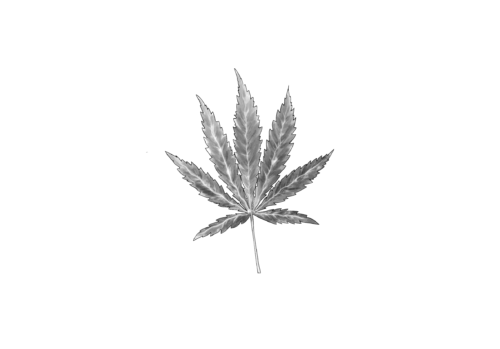“We’ll have edibles for you on the way out,” moderator Khalil Gibran Muhammad jokingly promised at the start of the Institute of Politics JFK Forum Event on Wednesday, April 12th. Though the discussion did not end with edible goodie bags, it did discuss the ramifications and historial path of the racialization and legalization of cannabis across the United States and Canada.
The panel consisted of Akwasi Owusu-Bempah and Tahira Rehmatullah, co-authors of the new book Waiting to Inhale: Cannabis Legalization and the Fight for Racial Justice. Muhammad, a professor of History, Race, and Public Policy at Harvard Kennedy School, moderated the discussion which was hosted by the Institute of Politics and Institutional Antiracism and Accountability Project.
Muhammad began the discussion by asking Owusu-Bempah and Rehmatullah for background on the history of racial justice relative to cannabis and the use of cannabis criminalization to target Black and brown communities. Together, they crafted a clear history of the unjust cycles of drug criminalization tracing back to the Great Depression, as well as the profiling and discrimination that permeates to today. Their stories were peppered with shocking statistics, riveting personal stories, and opportunities for the audience to get involved.
The criminalization of cannabis exemplifies how the justice system targets marginalized groups using commodities used within their communities. As the panelists stated, 80-90% of the 800,000 marijuana possession drug arrests per year are directed at Black or brown individuals, regardless of the equivalent levels of cannabis use across racial groups. Owusu-Bempah and Rehmatullah told numerous anecdotes that solidified the personal and life-long impact of these numbers and facts having imminent consequences on individuals and their families.
One account told the story of Evelyn, a college-educated woman who held a steady job. Not a user nor distributor of cannabis, Evelyn’s friend used her bank account to store proceeds from her sale of cannabis. After undergoing an arrest and the ensuing criminal investigation, Evelyn served 87 months in prison, most of which was spent on suicide watch or in isolation in high-security prisons across the country, and away from any family or friends to visit her. Receiving the same treatment as murderers and rapists, Evelyn’s incarceration was a clear legal overreaction for a tangential involvement with cannabis sales.
Although Evelyn was fortunate enough to have a support system after she got out of prison, her example is an exception to an all-too common trend. Her conviction and status as a felon will follow her forever, tainting her record and ability to find employment; as Rehmatullah stated, “these kinds of things, they hang on to your life for the rest of time.”
To introduce the idea of the social perception of cannabis, Owusu-Bempah polled the audience. After asking if people know peers who use alcohol and cannabis, he asked, “how many people realize that alcohol consumption has much greater societal and individual impact than cannabis?” This question elicited a new perspective to the conversation—despite marijuana being more minor of a problem than alcohol, it carries a stigma and history that demonize both the drug and its users.
Owusu-Bempah used a college-relevant example to explain the social perception of marijuana. He asked, “think about your friends when they get high versus when they get drunk. When they get high, they want, what, pizza? But when they get drunk? Something very different happens.”
Owusu-Bempah provided a provocative perspective rooted in science, explaining that while daily items like coffee and sugar are more addictive than cannabis, their connotations differ greatly. Further, Rehmatullah mentioned that there are no cases of death from someone overdosing on cannabis.
The panel concluded by discussing possible solutions. “We have an opportunity to repair the harm done to communities of color,” said Owusu-Bempah. Rehmatullah and Owusu-Bempah described many inspiring initiatives by members of the community that had some kind of personal experience tying them closer to the cause.
There is also growing awareness within criminal justice programs, including the Code for America project. Code for America is working toward removing the criminal records for people who committed offenses that are not illegal anymore in order to clear their records and allow them a second chance. “We don’t have any systems to help people who are coming out of prisons,” said Owusu-Bempah. After serving time for a cannabis offense, you are often unable to get a job, loans, mortgage, be able to vote, and take part in several other normal parts of a self-sufficient life.
“Cannabis is a gateway drug—not to harder drug use, but to the criminal justice system.”
Gauri Sood ’26 (gaurisood@college.harvard.edu) and Sachi Laumas ’26 (slaumas@college.harvard.edu) left IOP’s forum with a new perspective on the importance of cannabis legislation.

